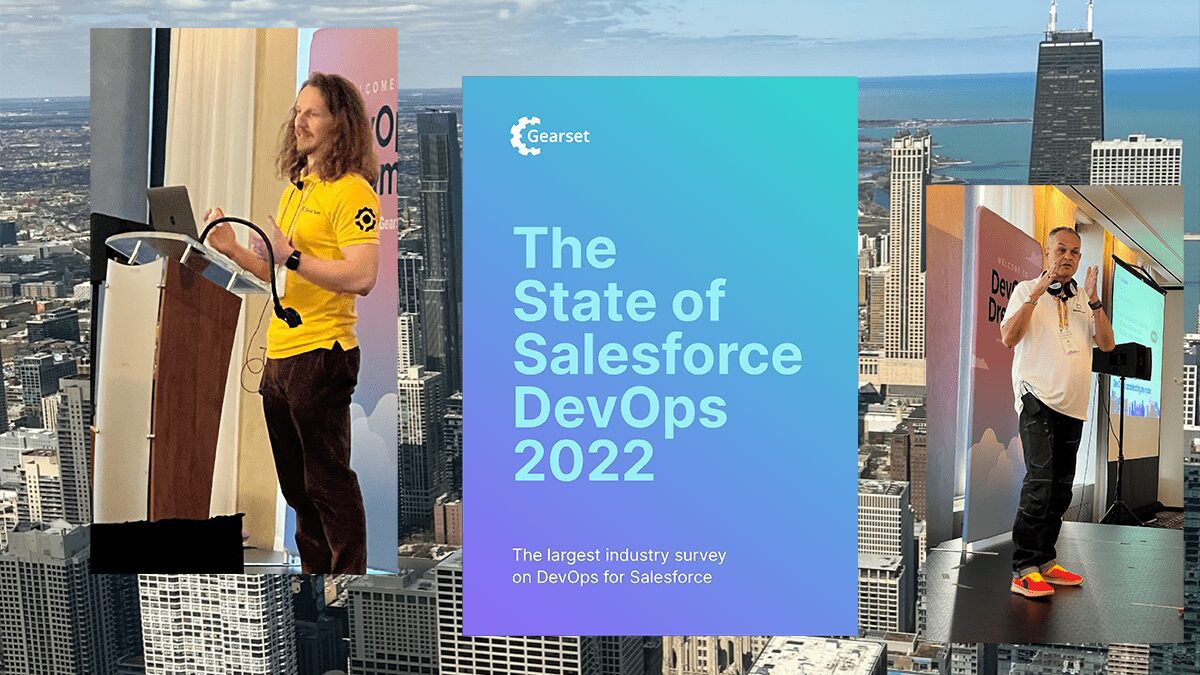Gearset State of Salesforce Devops and Devops Dreamin’ Chicago 2022 Roundup
Gearset, one of the top Salesforce devops platform vendors, has been busy lately. Earlier this month they wrapped up their first North American customer gathering. And this week they published the 2022 edition of Gearset State of Salesforce Devops Report. I was honored to be a speaker and guest of Gearset at the Chicago event and was very pleased to meet several Gearset users and system integrators. In this post I cover my impressions of the Gearset Devops Dreamin’ event, and I will share some of the important findings in The State of Salesforce DevOps 2022 report.
Devops Dreamin’ Chicago 2022
This was the second in-person event I’ve attended since lockdown, and I was grateful to have Gearset host me as a speaker. I had the chance to circulate and get devops stories from end-users, system integrators, and vendors. It was great to have that highly efficient and fun way of doing business back in action.
My session was a panel event hosted by Ian Gotts, who was substituting for Ben McCarthy of SalesforceBen. Other panelists were Abhishek Saxena from Appirio and Maritina Tsembelis from Gearset. We talked about jobs in the Salesforce devops industry. I got a chance to share some research I recently did for SalesforceBen on devops training. Look for that article in the coming weeks.
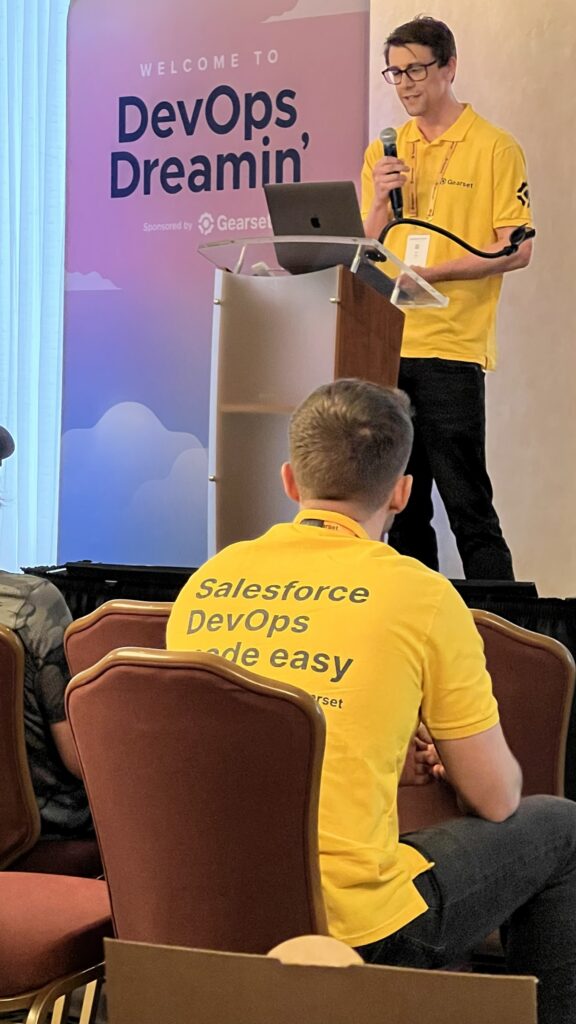

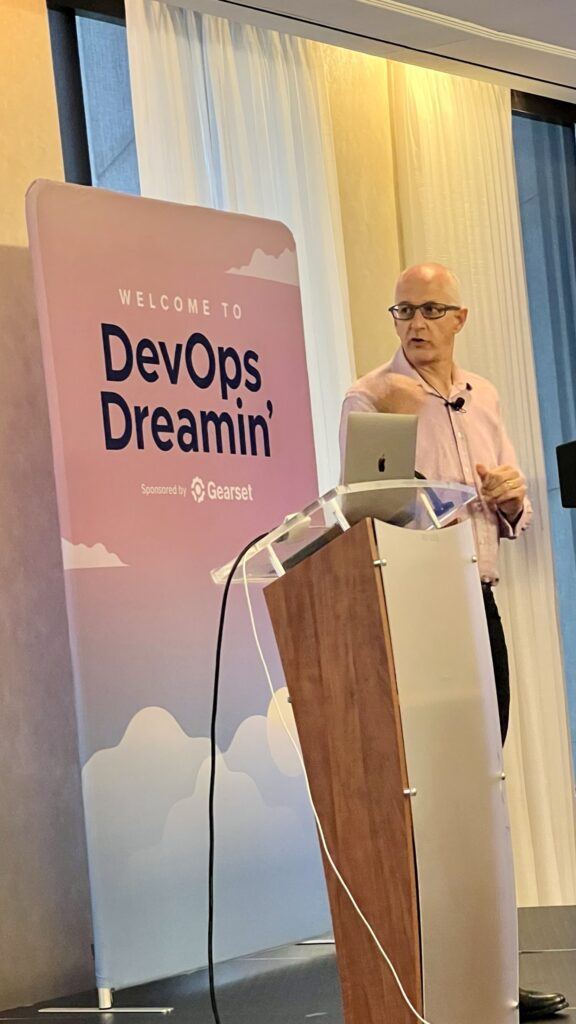
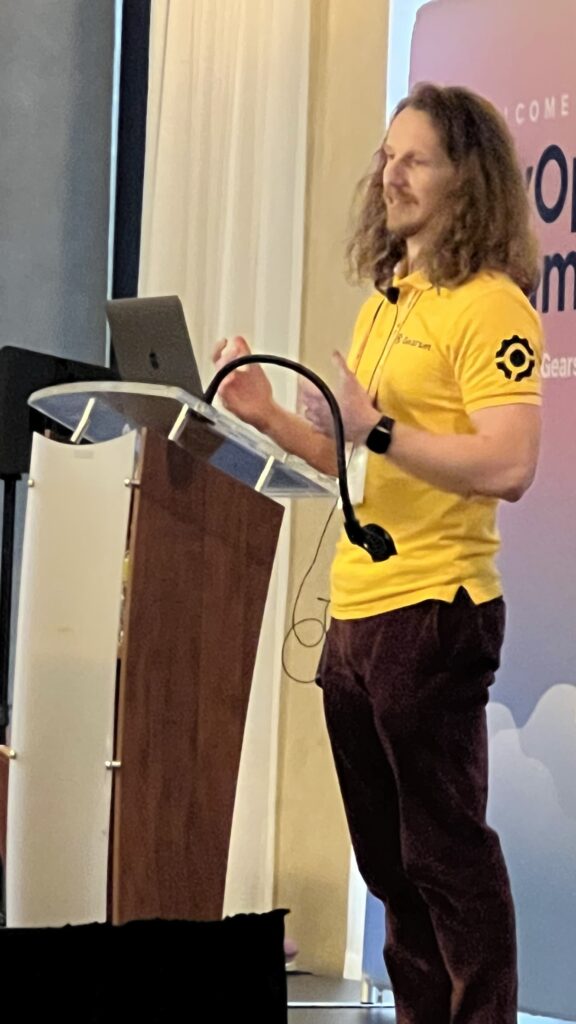
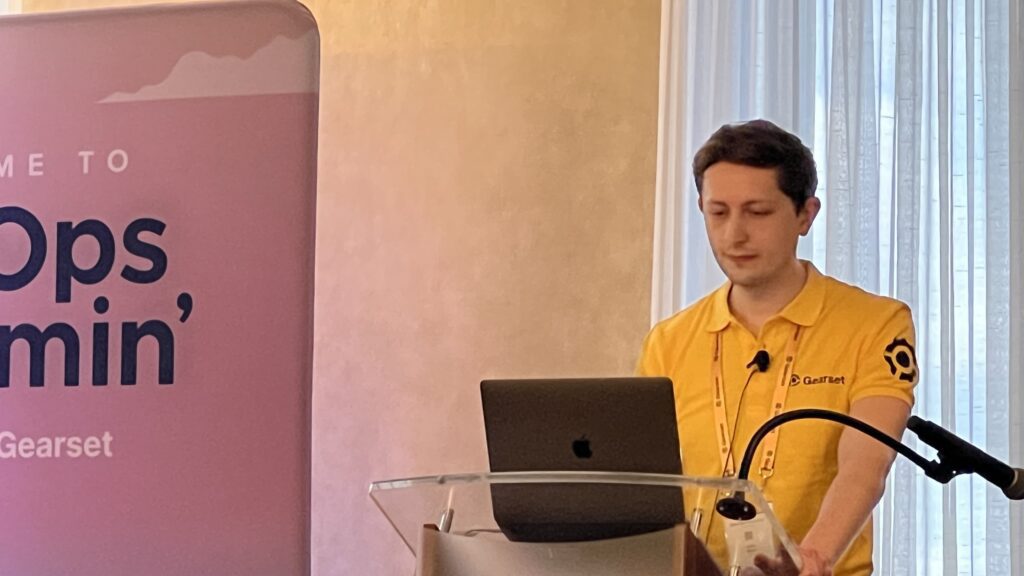
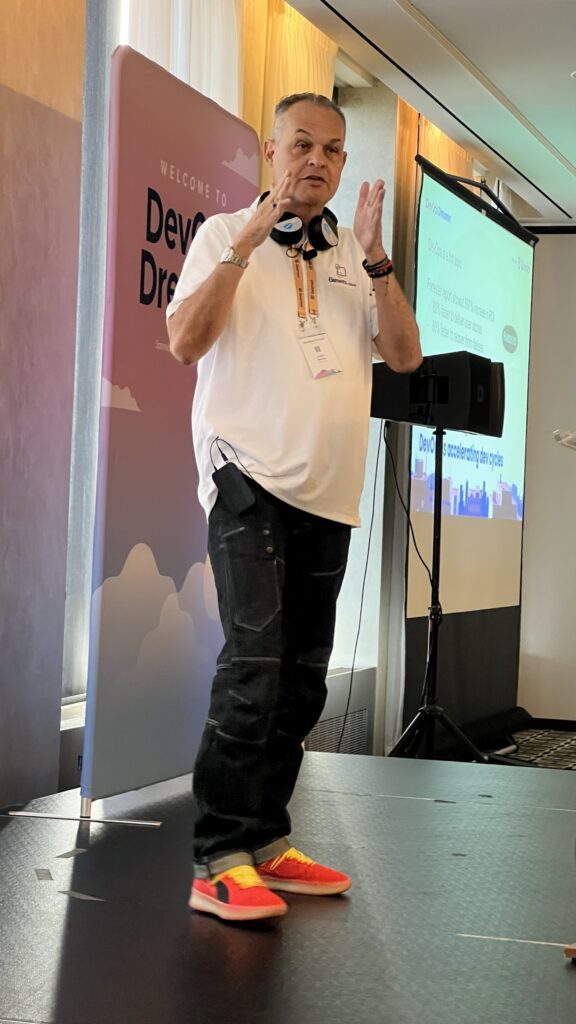
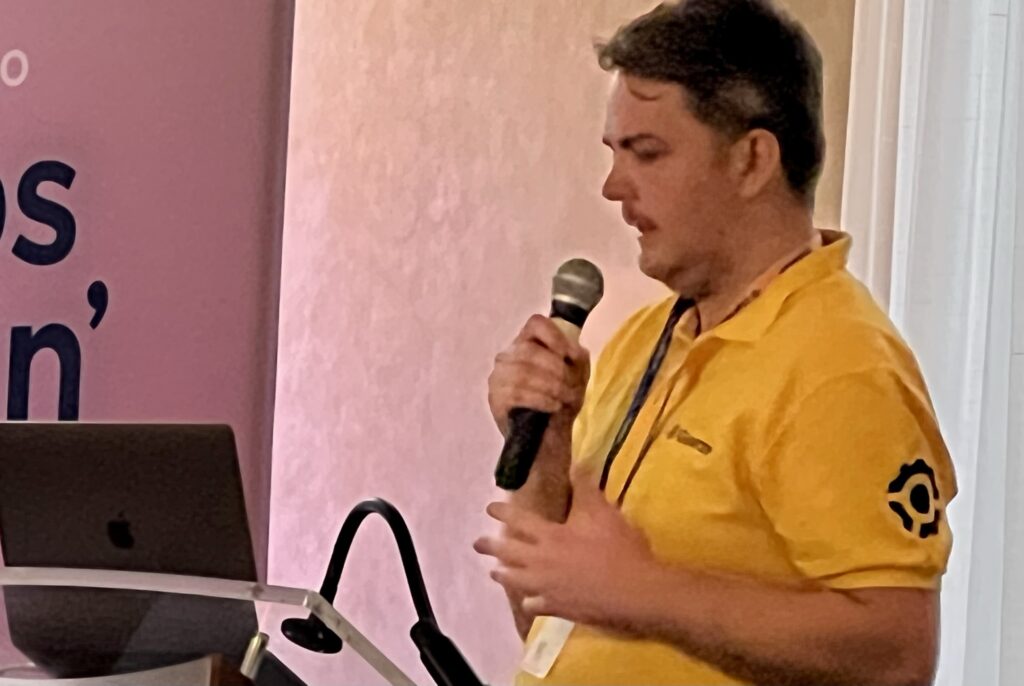
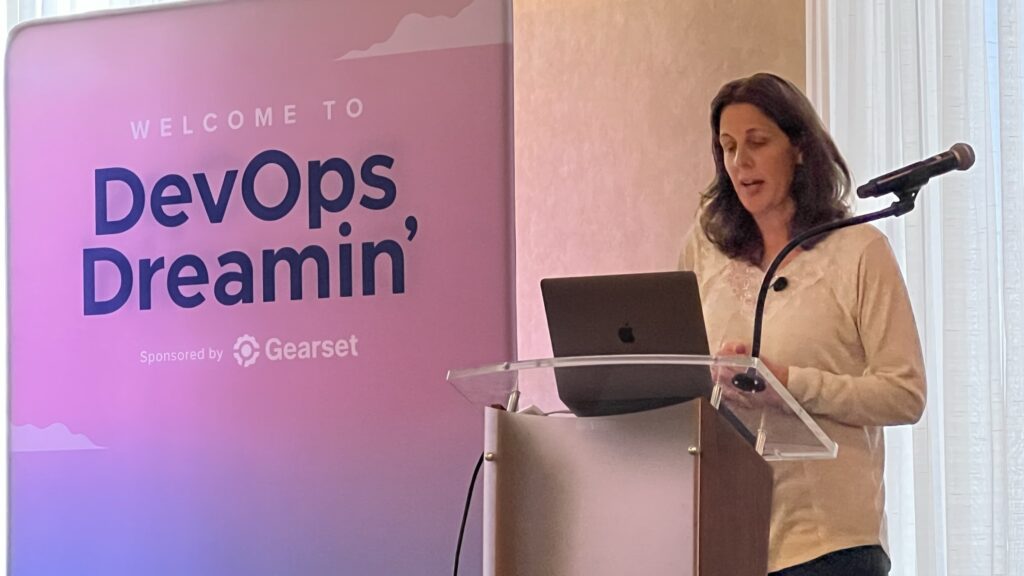

Unlike most Dreamin’ events, this was clearly a vendor-focused event with most of the content aimed at using Gearset. And, as a vendor-focused event it was great! Everybody I met was already a Gearset customer or was seriously considering a purchase. There was plenty of access to product managers and other Gearset employees. There was a small vendor village with software and services companies that complimented Gearset. Two companies listed in the SalesforceDevops.net Industry Map companies present were Elements.cloud and Provar.
I found the Gearset product roadmap session to be especially open and helpful for Gearset customers. And there was vendor-independent content on the main stage and side stages as well. I hope Gearset repeats this event and has a North America user conference every year. I love vendor community gatherings because they are so beneficial for everybody. That is why I recommend every Gearset customer think about representation at future editions of Devops Dreamin’.
Gearset State of Salesforce DevOps 2022 Highlights
This is the second year of Gearset’s public research project. The company should be commended for developing a public research project on Salesforce devops. This is especially true considering the success of the Puppet Labs State of DevOps Report. Puppet Labs’ work has produced impressive results. Their research shows how using four basic devops performance metrics is scientifically correlated with key performance indicators. This means you can tie devops performance improvement directly to organizational success. The Gearset dataset, while nascent, should also allow researchers to test the correlation between high-performing teams and good devops metrics as time goes on.
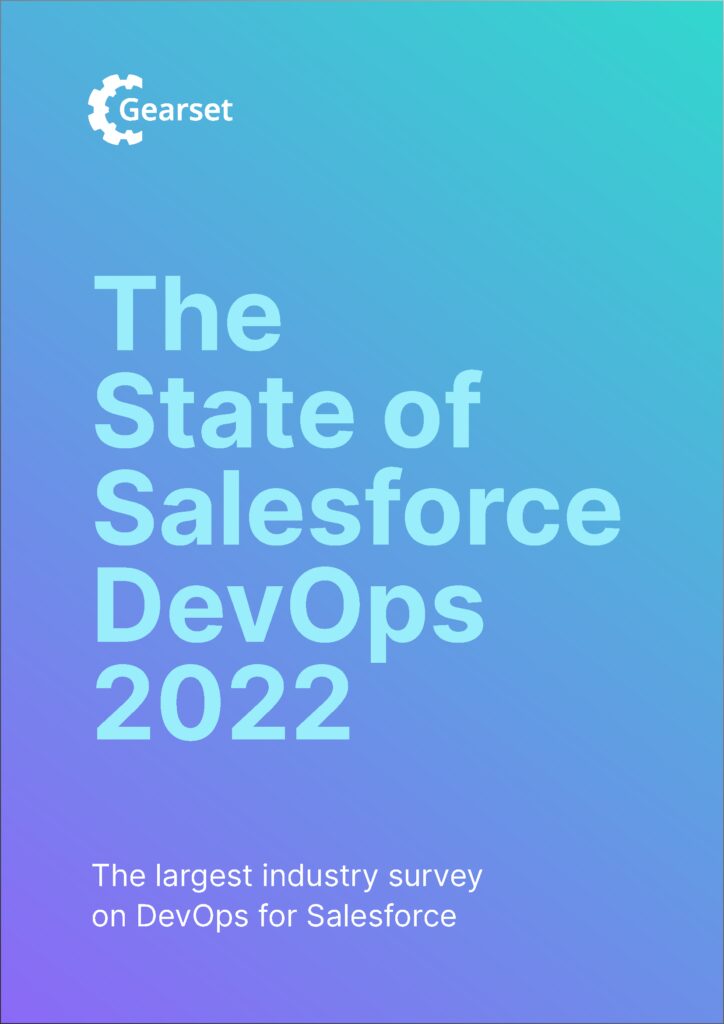
I mention the longitudinal factors in Gearset’s study, because right now the study doesn’t show a fully engaged Salesforce devops user base. Based on adoption rates and current release activities, the average respondent seems to know they need devops. And Salesforce devops buyers are willing to buy the tools but aren’t quite sure what to do next.
Release Management Only, Please
Troubling data revealed by the survey is that respondents may only be interested in a better way to do Salesforce release management. While they are only shopping for tools, they still see the Salesforce devops marketplace as the place to get them. I see this as an indirect indicator of the state of Salesforce release management without devops, which is nearly unmanageable.
But Gearset also noticed that respondents were quick to set aside adoption of devops activities that promoted organizational flow. Gearset noted that by avoiding organizational change platform owners are ignoring all the management techniques proven to work in high-performing teams.
GIT Troubles
Perhaps one of the reasons people aren’t breaking down organizational silos yet is because they are hung up on full adoption of Salesforce source code management. According to survey results, about one-half of respondents are using a scripted command server to run devops pipelines. And a majority have problems in managing source code repositories and devops pipelines, citing weekly exceptions that require fixing.
Stubborn People
The Gearset study finds that people rather than ideas get in the way of devops initiatives. It’s the old poor cultural adoption trope. If the entire company does not buy into devops, then projects seem to fall flat. I’m not sure it is OK for devops vendors to complain about this. Check my conclusion for a little rant on the subject.
Metrics? What Metrics?
Even though survey respondents “felt” like Salesforce devops was working for them, very few had calculated the return on investment (ROI). Most respondents felt like they had very little support for analyzing metrics and calculating ROI.
Backup Uncertainty
The survey also called out a common problem in Salesforce platform administration: uncertainties in backup responsibilities. There seems to be confusion between the platform and release management teams. Gearset rightly used this finding to highlight the need to include metadata and other configuration data into coordinated backup schemes.
Conclusion
With these latest efforts, Gearset continues to be a leader in Salesforce devops public education and research. In addition to publishing the Gearset State of Salesforce DevOps Report, Gearset offers a freely available training environment called DevOps Launchpad with some vendor-independent content.
The devops industry must make the devops seen as an essential part of a new management operating system. Almost everything a big company does today is supported or entirely based on information technology. It is high time to improve the way IT is run in big companies, and devops is the best way to package and deliver key management innovations.
Comparing the report to the conference one finds an interesting incongruity, though. While the report complained about “stubborn people” who won’t adopt any of the transformational aspects of devops, the conference lacked virtually any content on those challenges! We got lots of nuts-and-bolts information on Gearset. But at the conference we got little information on how to confront the organizational challenges posed by adopting a devops culture.
It is up to vendors like Gearset to step up the discussion on the organizational challenges posed by devops. This is useful, because IT management needs to recognize why it has a hard time retaining people. Devops principles provide ways to marshal the creativity of small teams and let them create their own solutions. And it is up to IT vendors to educate c-suite executives on devops, so company decision makers ignore this new way of work at their own peril.
So, vendors must create stronger stories about how devops improves IT, and how it controls the productivity and performance of the enterprise. Then, it is up to the company executives to use devops to introduce performance metrics. In this way, teams are allowed to measure their own performance and figure it out with their own skills and guile.
